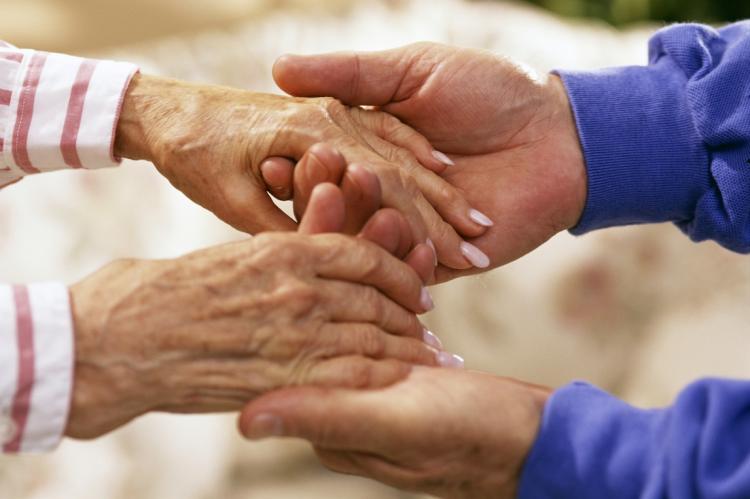By Lee Howard
The Day, New London, Conn.
NEW LONDON
When Suzanne Karp’s father insisted on taking care of his wife, who had Alzheimer’s disease, a tragedy played out.
Just a short time after her mom died, Suzanne’s previously healthy father was dead as well.
buy cymbalta generic buy cymbalta online no prescription
“He died of Alzheimer’s,” Suzanne said. “People don’t realize the burnout.”
So five years ago, Suzanne and husband Daniel decided to make a business out of helping take care of elderly residents in their homes. And business was pretty good, but something still nagged at them.
“What can we do better and different?” they asked themselves about two years ago.
The owners of Care at Home came up with a few ideas and then put their plan into action about a year ago. The results, they say, have been nothing short of amazing, as referrals to their home-care agency come in batches every week.
One of the first things they fixed, the Karps said, is the problem of home caregivers not showing up at their appointed time.
They quickly decided on a system requiring their staff to call in from the client’s home to ensure that everyone is covered without fail, and Care at Home personnel follow up if they have not heard from an employee, with people on call to fill in if necessary.
“We want to have direct contact with our clients,” Daniel said. “We’re part of their family.”
And that brings up another change for the better at the Karps’ business: a section of the company’s website devoted to keeping families on top of what is happening with their elderly parents and grandparents. Loved ones have the option any time of the day or night to log in to the “Family Room” to view daily reports on their loved ones filed by Care at Home employees.
Finally, company employees are spot checked, carefully screened (both initially and periodically thereafter), get a decent wage and even earn bonuses and vacation time, the Karps said.
“Caregivers are the core of the company,” Daniel said. “If we take good care of our employees, they will take good care of our clients.”
Attention paid to the home caregivers has paid off, he added, because the company gets most of its new employees by referral from current staff members rather than having to wade through stacks of resumes.
“It’s a difficult job,” Daniel said. “It takes a special person to be a caregiver.”
Care at Home, which covers southeastern Connecticut and has just entered the Rhode Island market, employs 70 to 75 caregivers, both part time and full time. About three quarters are women, some with nursing degrees.
The first thing Care at Home does is provide a free assessment of the situation, finding out exactly what the needs are while also determining the interests and desires of the client. The Karps, who live in New London, try to match the hobbies and activities of their clients with employees who have similar interests.
Care at Home fulfills five basic functions and can be engaged for any one or combination of them: transportation (including transfers to and from medical facilities), fall prevention, meals, personal details and housekeeping. Helping people with organizing and taking medications is one of the key details home care workers deal with, the Karps said, but Care at Home also stresses to workers that they keep clients engaged with puzzles, exercise and even gardening.
Hourly rates for clients start at about $15, but vary widely depending on the number of hours needed and the type of work that needs to be done.
“We do everything from minimum hourly to 24-hour live-in,” Suzanne said.
“We don’t like to scare people with prices,” Daniel added. “Our mission is to help people stay in their home and get the care they need. … We make it affordable.”
Daniel said Care at Home also will take care of the paperwork and can even find funding sources from the Veterans Administration, the Department of Aging and other agencies. Suzanne comes from a background of working with older populations, while Daniel is an entrepreneur who has launched a variety of businesses in the past.
The Karps said the holidays are a busy time for businesses that deal with the elderly population. Many adult children come home this time of year and suddenly realize their parents are needing more help with day-to-day needs than they can give from afar, they said, and turn to home care services to bridge the gap.
Care at Home often gets called in the midst of a crisis, such as a fall or other situation that requires hospitalization or rehabilitation.
“It’s better to start care before a crisis,” Suzanne said.
And the Karps believe from personal experience that home care is best left to the professionals to take the burden off family members and allow them to concentrate on enjoying time with their loved ones rather than stressing out over all the details of being a caregiver.
“Let us take care of your mom and dad,” Suzanne said. “It’s often too much. People need to take the stress off themselves.”
“People want to be home,” Daniel added. “It’s quality of life.”














































































































































































































































































































































































